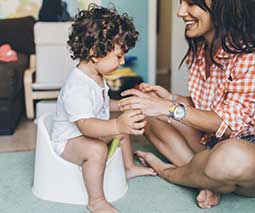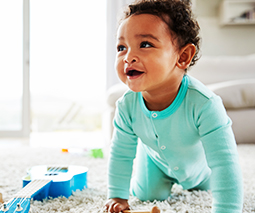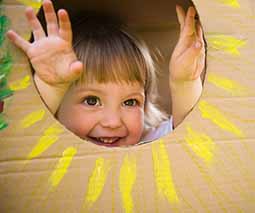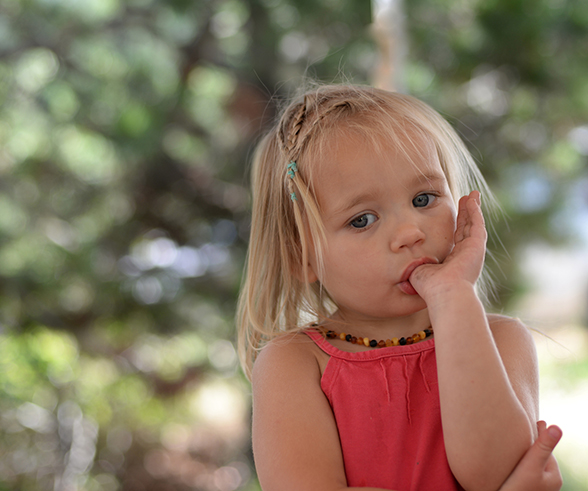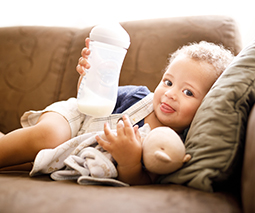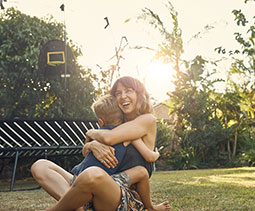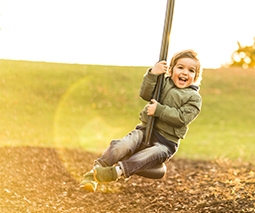Maggie Dent: Forget about noisy, educational toys when raising a clever toddler
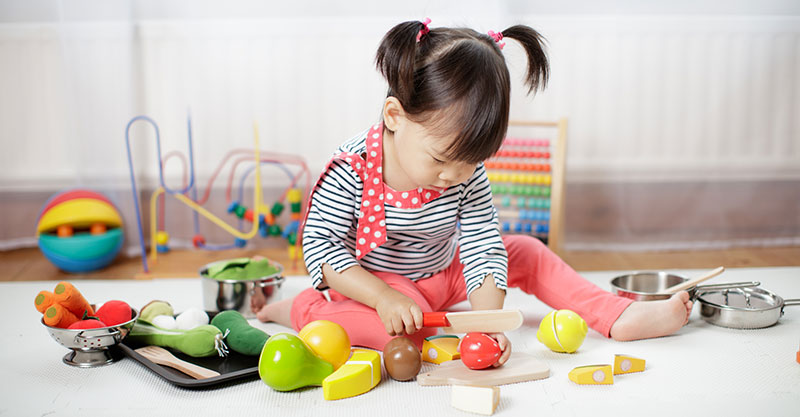
It’s the simple things that can have the greatest impact on a curious toddler, writes Lucy Kippist.
Forget the noisy educational toys you can buy at the shops.
When it comes to raising clever toddlers, the simple things in life are absolutely the best, according to parenting educator and writer, Maggie Dent.
“They’re biologically wired to be curious and they need to be moving – this is a toddler’s core business,” Maggie told Feed Play Love. “It’s an old-fashioned thing to do but it works. If you don’t have a kitchen drawer that’s safe, or you’re pressed for space, you can use an old cardboard box and toss in things they can’t break.”
Kitchen cupboards or boxes of ‘stuff’ are terrifically accessible, which means it’s easy for your toddler to play around you.
“Toddlers are always looking to be closer to the grown-ups they love. This is part of their attachment development, they need to feel belonging and feel close,” says Maggie.
Stimulates the brain
Have you ever noticed how excited your toddler gets when they see something for the first time? Maggie says it helps to think of your toddler as a mini-scientist who’s ready for adventures.
“Toddlers use all their senses to negotiate a new thing. This self-motivated, autonomous exploration of stuff that doesn’t cost money is SO important,” says Maggie.
“When you give them the pocket of freedom to explore, they don’t actually need you. It activates the seeking mechanism in their brain – they are wired to be curious about this stuff.”
Listen to Maggie Dent on Feed Play Love:
Relax into the chaos
We know what you’re thinking … If I let my toddler into the cupboards, there’ll be mess EVERYWHERE!
“Yep,” says Maggie. “But there is some really important stuff going on here – allow their fascination. And you have to be okay with the chaos reigning. It won’t last forever, but it’s a magical window of learning and development. They’re being little scientists and testing hypotheses.”
Let them explore their surroundings for the same reasons. It can be tempting to close the doors around the house to keep them away from the ‘good things’ – but that will only increase their curiosity.
“Don’t keep closing doors in the house. If they really want to go into your bedroom, let them romp around in there,” says Maggie. “When they have explored it enough, the excitement is gone. If you shut the door you keep the curiosity levels high, and they’ll keep trying to get in there.”
The same rules apply for the most awful of all toddler curiosities – the toilet!
“What could be more fascinating than a toilet for a toddler? You put stuff in it, you flush it, and then everything disappears! If you really allow them to experience it for a while, then see what happens.”
It’s not ‘naughty’, it’s just exploration
Maggie told Kinderling Conversation that often parents confuse behaviour and play that makes a mess, or that’s noisy, as evidence that their children are ‘playing up’. The truth is that at the toddler stage, the mess and the exploration is all part of their learning and discovery.
“Often at my conferences, I will have mums come up to me and say, ‘Oh my god, Maggie. I was seeing that as naughty and bad behaviour, and now I see that it’s them being creative and clever!”
Do less, engage more
Maggie says our children will be smarter if we let ourselves off the hook and just relax a bit more.
“I feel deeply for parents today, drowning in too much information and too much pressure about what makes kids smart,” says Maggie. “Kids need a lot less, with a bit more freedom – grab a cardboard box, some pegs, cutlery on the floor and make their own noise. This is great learning for them.”
The most valuable tool as a parent is making time to really engage with your children.
“Sit on the couch for a moment with your cup of tea, and watch them and how clever they are – with a whisk and a different coloured cup. They are trying to work out what’s going on,” says Maggie.
“The first five years are when our children are learning to be human. What they need most is a human face, to download all the human emotions. We need to prioritise that communication. Chat to them as they are sitting in the bath, and talk to them as you’re playing with them. You don’t have to organise everything for them, just relax and watch them at play.”
That almost sounds relaxing, doesn’t it?
This post was originally published on Kinderling Kids Radio. Download the Kinderling app for more great stories.
